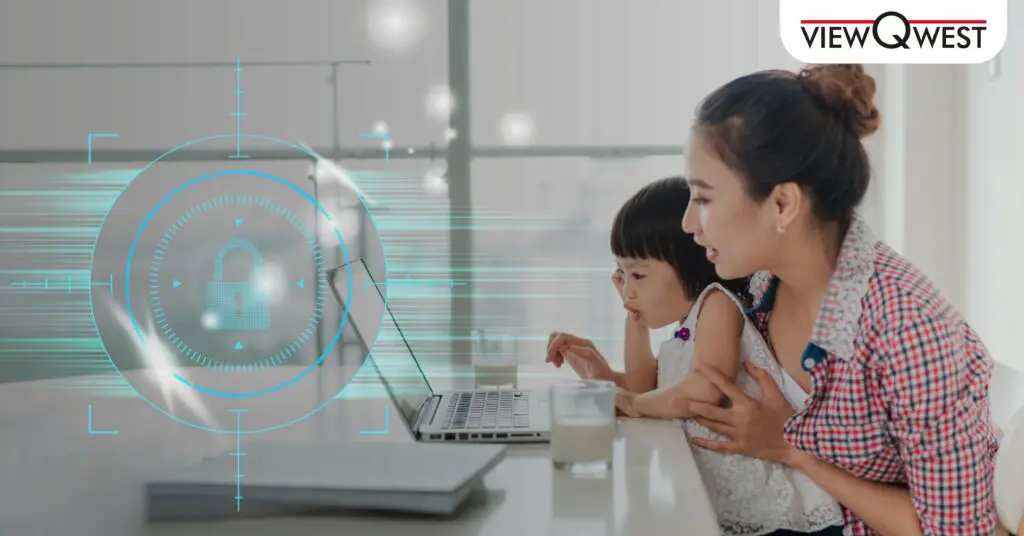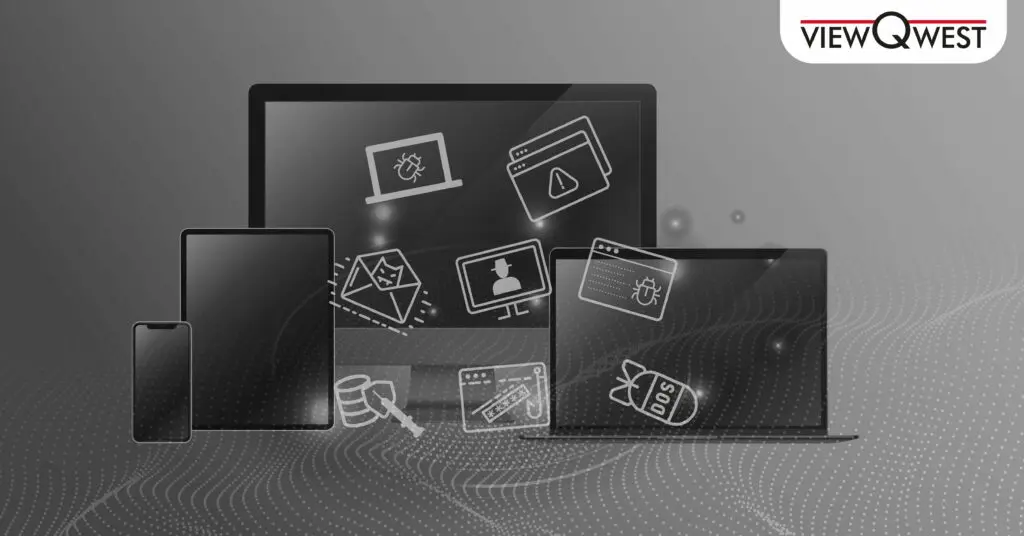Imagine this: you’re unwinding after a long day, your kids are streaming their favourite show in one room, and you’re catching up on some work emails in another. Suddenly, you notice a strange email alert on your phone, or worse, a notification from your bank about a transaction you didn’t make. As digital threats grow more sophisticated, cyberattacks aren’t just hitting big businesses – they’re reaching into our homes, disrupting the privacy, security, and peace of our families.
In Singapore, incidents like the OCBC phishing scams and high-profile data breaches are a stark reminder of the risks we all face. It’s not just businesses at stake; now, our smart TVs, baby monitors, and even our home WiFi networks are potential entry points for hackers. And while we’re becoming more digitally connected each day, we’re also becoming more vulnerable to these invisible threats that can lead to identity theft, data loss, and financial damage.
In this guide, we’ll dive into practical yet powerful steps you can take to protect your home. From locking down your WiFi network and securing smart devices to educating every family member on safe online practices, these strategies are your toolkit for keeping cybercriminals at bay. Because in today’s digital world, protecting your home isn’t just about locked doors and windows – it’s about safeguarding your family’s digital life and privacy too.
What is Home Cybersecurity?
Home cybersecurity is the practice of protecting all internet-connected devices and networks within a household from unauthorised access, attacks, and potential damage. More than just locking down devices, it’s about safeguarding your family’s digital footprint, keeping private information secure, and ensuring that daily online activities are safe from lurking threats.
Why is Home Cybersecurity Important?
In today’s connected world, everything from our laptops and tablets to smart TVs and home assistants relies on the internet, forming a web of devices that can be vulnerable if left unprotected. Hackers can use even the smallest security gap to access your personal files, monitor your browsing, or hijack devices without your knowledge. Home cybersecurity helps secure this digital ecosystem, protecting your family’s privacy and peace of mind.
Identifying Common Cybersecurity Threats at Home
Cyber threats are becoming more sophisticated and prevalent, and some of the most targeted victims are home users. Here’s a look at the common cybersecurity threats you and your family might face, along with simple ways to stay safe:
-
Phishing Attacks
Phishing attacks are a form of social engineering where attackers impersonate trusted institutions like banks, online stores, or even delivery services to trick individuals into sharing sensitive information. In Singapore, phishing scams are on the rise, often taking the form of fake SMS messages or emails from “banks” asking for login details. Example: Imagine receiving an SMS that looks like it’s from your bank, warning of suspicious activity and prompting you to log in immediately. One click on a malicious link, and your account information could be compromised.
-
Malware
Malware is malicious software that infects devices, potentially leading to stolen data, privacy breaches, and financial loss. Malware can sneak into devices via untrusted apps, malicious downloads, or unsafe websites.
Types of Malware:
- Viruses: Attach to clean files and spread, corrupting data.
- Trojans: Disguise as legitimate software to gain unauthorised access.
- Spyware: Secretly monitors and collects sensitive information.
- Ransomware: Locks users out of their data, demanding a ransom for access.
- Adware: Generates intrusive ads that may carry more harmful malware.
- Data Interception and Unauthorised Access
Data interception occurs when attackers exploit weak networks (like public WiFi) to capture sensitive information, such as passwords or credit card numbers. Even home WiFi networks can be vulnerable if not secured properly. Example: You’re working from a café using public WiFi, and a hacker nearby intercepts your network traffic, gaining access to your private information.
-
Internet of Things (IoT) Device Vulnerabilities
The growing use of IoT devices, such as smart speakers, cameras, and thermostats, presents new cybersecurity challenges. Many IoT devices are designed with minimal security, making them easy targets for hackers who may exploit them as gateways to access your entire network. Example: A compromised baby monitor could give hackers a live feed into your home, infringing on privacy and security.
-
E-commerce Data Interception
E-commerce data interception is a form of cyber threat targeting online shoppers. Attackers embed malicious code into fake or compromised websites to steal payment details during a transaction. Example: You’re shopping on an unfamiliar website with a deal that seems too good to pass up. During checkout, your credit card information is intercepted, leading to fraudulent charges.
-
Distributed Denial of Service (DDoS) Attacks
A DDoS attack floods a targeted website, server, or network with excessive traffic, rendering it unavailable to legitimate users. While DDoS attacks typically target businesses, home networks can also be impacted if smart devices are hijacked and used in botnets (networks of infected devices controlled remotely by attackers to coordinate large-scale attacks) Example: A large-scale DDoS attack that leverages home IoT devices to overwhelm network systems could lead to internet disruptions for home users.
Device and Network Security Essentials for Your Home
Cybersecurity at home starts with taking proactive steps to secure your devices, network, and family’s privacy. From mobile devices and smart home gadgets to WiFi networks, safeguarding each part of your digital environment is essential for comprehensive protection. Here’s a breakdown of the most effective security measures you can put in place.
-
Use a Reliable Antivirus Software
Antivirus software protects your devices by detecting and blocking malware, viruses, spyware, and other malicious software that can compromise your data.
Choose Reputable Antivirus Software
- A reliable antivirus program will scan for and remove harmful software, preventing infections and data breaches.
- Install a reputable antivirus solution and set it to perform automatic scans and updates. Some popular choices include Norton, Avast, and Bitdefender.
Schedule Regular Scans
- Regular scans help catch any potentially harmful files that might have slipped through.
- Configure your antivirus software to run full scans at least weekly, and run additional scans if you suspect any suspicious activity on your device.
Enable Real-Time Protection
- Real-time protection monitors activity in the background, alerting you immediately if it detects a threat.
- Most antivirus programs include this feature by default, but double-check your settings to ensure it’s active.
-
Install and Maintain a Firewall
Firewalls are essential for protecting your home network, as they monitor and control incoming and outgoing traffic, blocking unauthorised access.
Enable Router Firewalls
- Many routers come with built-in firewalls to monitor network traffic and protect against external threats.
- Check your router’s settings (typically accessible via a web browser by entering the router’s IP address) and ensure the firewall is enabled.
Use Software Firewalls on Devices
- Software firewalls add an additional layer of protection for individual devices, particularly those that connect to external networks.
- Enable firewalls on devices like laptops and desktops through the operating system’s security settings. Advanced users may consider third-party options like pfSense or Bitdefender Box for enhanced firewall customisation.
-
Securing Personal Mobile Devices
Our smartphones and tablets are central to our daily lives, storing personal information like contacts, photos, financial details, and more. This makes them prime targets for cyberattacks, so it’s essential to secure them properly.
Keep Operating Systems Updated
- Start by keeping your device’s operating system updated regularly, as each update includes security patches that protect against new vulnerabilities.
- Enabling automatic updates where possible makes this an effortless way to keep your device secure.
Set Strong, Unique Passcodes
- Weak passcodes make it easy for attackers to access devices if they are lost or stolen.
- Avoid easily guessed codes like birthdays or simple sequences; instead, aim for a mix of letters, numbers, and symbols. Your password should be at least 12 to 15 characters in length.
Enable Two-Factor Authentication (2FA)
- 2FA adds an extra layer of security by requiring an additional code when logging in.
- Go to your device’s security settings and activate 2FA for essential apps like banking, email, and social media.
Monitor App Permissions
- Be cautious with app permissions, too. Many apps request access to data they don’t necessarily need, which can lead to unnecessary data exposure.
- Regularly review permissions under your device’s settings and disable access to sensitive data unless necessary.
Avoid Downloading Apps from Untrusted Sources
- Apps from unverified sources may contain malware, spyware, or other malicious software that can compromise your device.
- Only download apps from trusted sources like the Apple App Store or Google Play Store, and avoid third-party sites.
-
Protecting Your IoT and Smart Home Devices
As more smart devices like speakers, cameras, and thermostats become part of our daily lives, it’s crucial to protect them from potential cyber threats. Many of these devices have minimal built-in security, making them vulnerable to hackers if not properly configured.
Change Default Device Passwords
- Default passwords are widely known and easily exploited by hackers so, setting a unique, strong password for each device is an essential first step.
- Log into the device settings through the app or device interface and set a unique, strong password of at least 12-15 characters with a combination of letters, numbers, and symbols.
Update Device Firmware Regularly
- Manufacturers frequently release firmware updates to fix security vulnerabilities, so regularly updating each device’s firmware is important.
- You can usually find update options in the device’s app or settings. Setting a reminder to check for updates monthly can make this process easier to manage.
Separate IoT Devices on a Guest Network
- Keeping IoT devices on a separate network from your main devices (like computers and smartphones) helps contain any potential security breaches, so attackers can’t easily access more sensitive data.
- In your router settings, enable a guest network for IoT devices and disable their access to main network resources.
Disable Unnecessary Features (e.g. Remote Access)
- Many IoT devices come with features like remote access or voice control that you may not need and that can introduce additional security risks.
- Check device settings to disable remote access, voice commands, or features you don’t use regularly.
-
Strengthening Your WiFi Network
Your home WiFi network is the gateway to all your connected devices. Securing it is critical to maintaining a protected home environment.
Change Default Router Settings
- Similar to IoT devices, most routers come with default usernames and passwords that are easy for attackers to guess.
- Log into your router’s settings (typically accessible via a web browser by entering your router’s IP address). Change the default admin username and password to a strong, unique combination.
Enable WPA3 Encryption
- WPA3 (WiFi Protected Access 3) is the latest and most secure WiFi encryption standard, protecting data by making it unreadable to unauthorised users.
- In your router’s security settings, select WPA3 if available. If your router doesn’t support WPA3, use WPA2 as a reliable alternative.
Set Up a Guest Network for Visitors
- A guest network provides separate internet access for visitors, keeping your primary devices isolated and secure.
- Enable the guest network feature in your router’s settings and set a strong password. Switch on the Guest Network Isolation feature to ensure that guest devices can’t access your main network’s devices.
Turn Off WPS (WiFi Protected Setup)
- WPS can be exploited by attackers due to its quick-connect feature, which can bypass standard security.
- In your router settings, disable the WPS option, usually found under “Advanced Settings.”
Update Router Firmware Regularly
- Manufacturers frequently release firmware updates to address security vulnerabilities. Keeping firmware updated ensures your router has the latest protections.
- Check for firmware updates in your router’s settings page or app, and set a reminder to check for updates monthly if automatic updates are unavailable.
-
Backing Up Data and Using Cloud Storage Wisely
Backing up your data is a crucial step in protecting your files and personal information from unexpected loss, whether due to device failure, accidental deletion, or cyber threats like ransomware. Using cloud storage effectively adds an extra layer of security and convenience. Here’s how to back up your data and make the most of cloud storage:
Enable Automatic Backups
- Automatic backups ensure that important files are consistently saved, reducing the risk of data loss due to hardware failure or cyberattacks.
- Use built-in cloud storage options like iCloud, Google Drive, or OneDrive, which offer automatic backup features. Set these up to run regularly – either daily or weekly, depending on your data needs.
Use External Hard Drives for Sensitive Data
- For highly sensitive information, external hard drives provide a secure, offline backup option, safe from online threats.
- Transfer important files to an encrypted external hard drive, and store it in a secure location. Aim to back up your data manually every month, especially if it changes frequently.
Encrypt Your Cloud Data
- Encrypting data stored in the cloud ensures that, even if your cloud provider’s security is breached, your data remains protected.
- Many cloud services offer built-in encryption, but for added security, use an encryption tool like VeraCrypt to encrypt files before uploading them to the cloud.
Be Selective with Cloud Syncing
- Syncing every file can lead to unintentional sharing of sensitive data across devices and cloud services.
- Choose specific folders to sync to the cloud and avoid syncing personal or confidential information unless necessary. Review your sync settings periodically to manage what’s backed up and shared.
Essential Online Safety Habits for a Secure Home
While securing your devices and network is crucial, safe online behaviour and the proper use of software are equally essential for maintaining a secure digital environment. Many cyber threats target users through everyday online interactions and unsafe practices. Adopting these best practices will help you and your family browse, communicate, and store data more securely.
-
Practice Safe Browsing and Avoid Suspicious Websites
Browsing safely is the foundation of online security, as malicious websites often trick users into downloading harmful software or revealing personal information. Always check for a secure HTTPS connection (look for the padlock icon in the browser’s address bar) before entering sensitive information. Avoid clicking on pop-up ads, suspicious links, or downloading software from unknown sources. Using a reputable ad blocker can also minimise exposure to potentially harmful sites.
-
Recognize Phishing Attempts
Phishing remains one of the most common and dangerous forms of cyberattack, often using emails or messages that appear legitimate to steal personal information. Be wary of emails, texts/WhatsApp messages, or calls requesting sensitive information, especially if they create a sense of urgency. Check the sender’s email address closely, avoid clicking on links from unknown sources, and reach out directly to the organisation if you’re unsure about the request.
-
Limit Personal Information Shared on Social Media
Cybercriminals often use social media to gather personal information for attacks. By limiting the details you share, such as birth dates, locations, or personal connections, you make it harder for attackers to exploit your information. Review and update your privacy settings regularly to ensure only trusted individuals can view your content, and avoid oversharing to reduce your online footprint.
-
Use Strong, Unique Passwords for Online Accounts
Using strong, unique passwords is vital to protect against unauthorised access. Avoid reusing passwords across multiple accounts, as a breach of one account could compromise others. Create unique passwords for each account with a mix of letters, numbers, and symbols, and consider using a password manager tool to securely store and generate complex passwords for all your accounts. Regular password updates add an extra layer of security.
-
Be Cautious with Public WiFi Networks
Public WiFi networks are often unencrypted, making them vulnerable to interception. Avoid accessing sensitive accounts (like online banking) when connected to public WiFi, and consider using a Virtual Private Network (VPN) to encrypt your connection if you need to use it. This precaution helps protect your data from potential eavesdroppers and keeps your online activity private.
-
Educate Family Members on Online Safety
Cybersecurity is a team effort, and everyone in the household should understand basic online safety practices. Teach family members, especially children, about the importance of not sharing personal information with strangers, avoiding unknown links, and reporting suspicious messages. Establish family guidelines for internet use and reinforce these practices to create a culture of cybersecurity awareness at home.
Role of Internet Service Providers (ISPs) in Home Cybersecurity
Internet Service Providers (ISPs) play a critical role in home cybersecurity by offering built-in protections that secure your network at the source. With increasing cyber threats targeting home users, many ISPs now provide security features that go beyond basic connectivity. Here’s how ISPs help protect your home network and what to look for when choosing a provider.
ISP-Level Security Features
Many ISPs offer built-in security tools that automatically protect your network and connected devices.
Network-Level Malware and Phishing Protection
- Network-level protections can identify and block harmful sites and files before they reach your devices, minimising exposure to malware and phishing attacks.
- Check if your ISP offers built-in filtering for malicious content, which can block suspicious websites and prevent users from accessing known phishing pages.
Automatic Threat Detection and Alerts
- ISPs with advanced threat detection systems can monitor your network for unusual activity and alert you to potential security risks.
- Some providers, like ViewQwest’s SecureNet, automatically scan for threats, sending notifications if any suspicious activity is detected on your network.
Parental Controls and Content Filtering
ISPs often include parental control options, allowing families to restrict content, set internet usage schedules, and monitor online activity.
- Parental controls help parents safeguard children from inappropriate content and limit exposure to online risks.
- Explore the parental control settings in your ISP’s app or website. Many providers offer flexible options to block specific sites or categories and even set time limits for internet use.
ISP-Provided Firewalls and Enhanced Security Protocols
Many ISPs offer network firewalls and advanced encryption protocols that protect the data traveling to and from your home network.
- ISP-level firewalls provide an additional layer of security by filtering data at the network level, which complements any device-specific firewalls.
- Contact your ISP to see if network firewalls and WPA3 encryption are available, and make sure these settings are enabled to provide stronger network protection.
Choosing a Secure ISP
When selecting an ISP, consider their cybersecurity features as part of the package. Reliable ISPs often include protections like malware filtering, content filtering, and network firewalls without additional setup on your end. Services like ViewQwest’s SecureNet provide seamless, ISP-level security that helps safeguard every connected device in your home. By choosing an ISP that prioritises cybersecurity, you gain a solid foundation of network protection that enhances the security measures you implement on individual devices. This ISP-level security, combined with your personal precautions, creates a multi-layered approach that’s essential for a safe digital home environment.
In today’s digital age, safeguarding your home from cyber threats has become essential to protecting your family’s privacy and security. Cyberattacks have evolved beyond just targeting large organisations – now, even personal devices, home networks, and smart home gadgets are at risk. Fortunately, by implementing a proactive cybersecurity strategy, you can reduce these threats and create a secure digital environment for your household. From securing your WiFi network and protecting your IoT devices to adopting safe online habits, every step contributes to a robust defence. Essential practices like keeping software up-to-date, using strong passwords, enabling multi-factor authentication, and relying on reliable antivirus and firewall software all serve as effective barriers against cyber threats. Remember, cybersecurity is an ongoing effort. Regularly updating security settings, staying informed about emerging threats, and involving all family members in safe online practices reinforce your defences. For a more comprehensive approach, consider ISP-level protections like ViewQwest’s SecureNet, which provides network-wide security that complements your personal precautions. By prioritising cybersecurity, you’re not only protecting your home but also empowering your family to navigate the digital world safely and confidently. In a connected world, a secure home means peace of mind.















